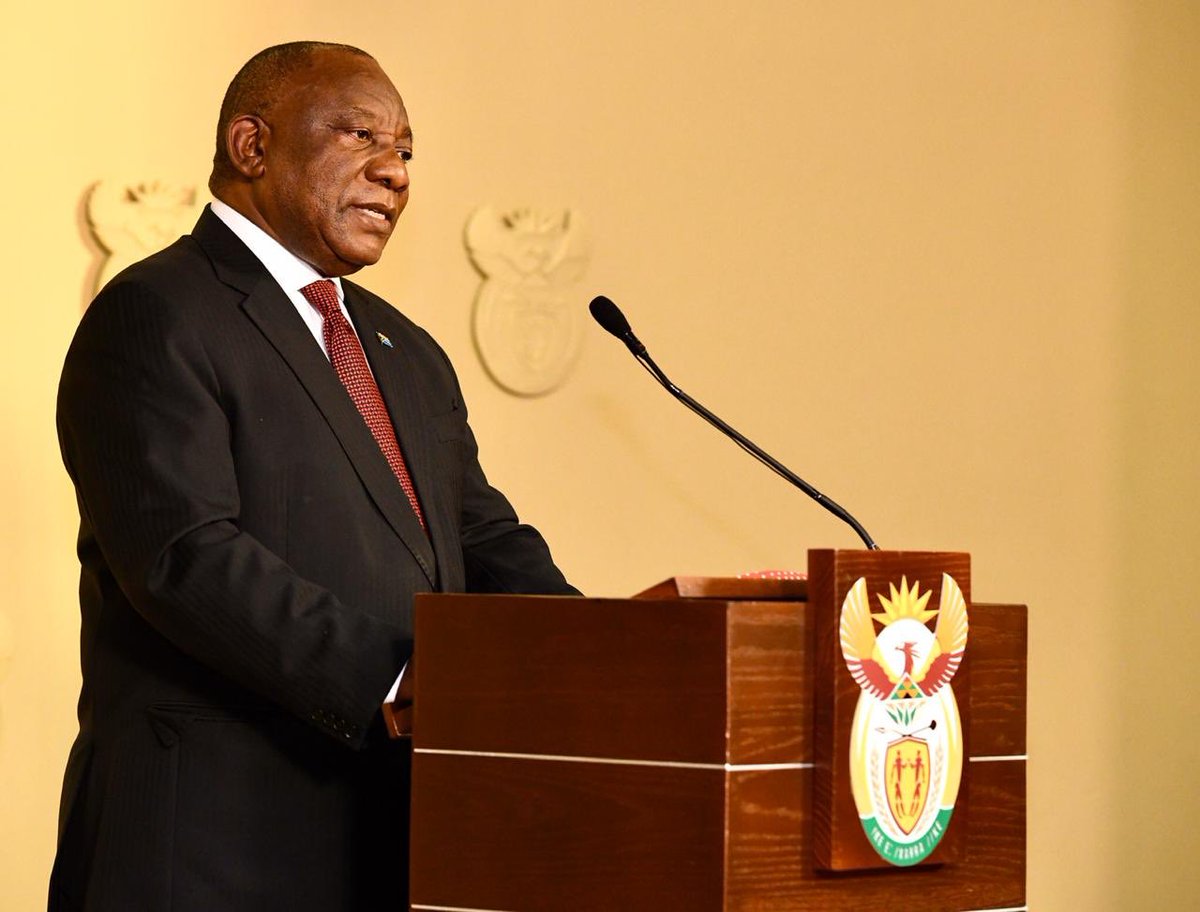This week, our country reached a sad moment in the progression of the coronavirus pandemic, as we recorded our 219th death from the disease.
Every life lost is a tragedy.
#COVID19 #CoronaVirusSA
I once again thank you for the sacrifices you have made thus far.
We have also benefited from the guidance from the World Health Organisation.
As it stands, there are 219 people in South Africa who have succumbed to this disease.
So far, we have been successful in the manner we as South Africans have responded and dealt with this virus.
The level of confirmed infections in South Africa is around 181 people per million of the population.
We have been able to source and produce substantial quantities of personal protective equipment for health workers, vital medical equipment and other supplies.
In all, our field workers have now screened over 9 million people, and we have conducted nearly 370,000 coronavirus tests.
It has been made possible by the hard work and dedication of thousands of community workers, nurses, doctors and other health workers.
By answering the call to stay at home and stay safe, you, the people of South Africa, have helped us to save many lives.
This will help to keep companies afloat & save millions of jobs.
We will spare no effort to ensure our most vulnerable citizens are supported and protected during this difficult time.
This includes an immediate contribution of R250 million to South Africa’s Solidarity Fund.
On the first of May, we moved to Alert Level 4 and began the phased easing of the national lockdown.
At the time, the country was at alert level 5, which has the most stringent restrictions on movement and economic activity.
Alert levels 3 to 1 allow a progressively greater relaxation of restrictions.
Our strategic approach has been based on saving lives and preserving livelihoods.
- Lockdown (to achieve extreme social distancing)
- Social distancing
- Adopting hand hygiene practices by washing hands regularly with water and soap or sanitiser
- Cough etiquette including coughing into your elbow or a tissue
- Wearing cloth masks whenever you are in public places
- Use of personal protection equipment by all health workers
- Frequent cleaning of the work environment and other public spaces
- Testing, isolation, quarantine and contact tracing
It is in the implementation of all these preventative measures that we will overcome this disease.
Most importantly, this new phase will require each of us to change our own behaviour in profound ways.
We need to take personal responsibility for our own health and the health of others.
We will need to re-organise workplaces, schools, universities, colleges and other public places to limit transmission.
It is our actions now that will determine whether the advantage we gained through the lockdown can be sustained.
The risk of infection outbreaks will increase as more people return to work.
My fellow South Africans,
Over the last 7 weeks, you have been asked to endure much and to sacrifice much.
Implementation has sometimes been slow and enforcement has sometimes been inconsistent and too harsh.
We are determined and committed:
to be transparent, to take the nation into confidence and to do so regularly;
to continue to engage and consult with you;
Where we have disappointed, we will continue to make amends.
Where we make mistakes, we will continue to correct them.
We have also learnt a lot about this virus.
There has been courage and solidarity.
A very different South Africa and world awaits us.
Let us rise to meet this challenge.
Let us stand as one family and one nation to build a new and stronger society.
The days before us will be difficult.
“In the face of the grave threat posed by HIV/AIDS, we have to rise above our differences and combine our efforts to save our people.
“History will judge us harshly if we fail to do so now.”
“The state of this nation is good
The heart of this nation is sound
The spirit of this nation is strong
The faith of this nation is eternal.”



